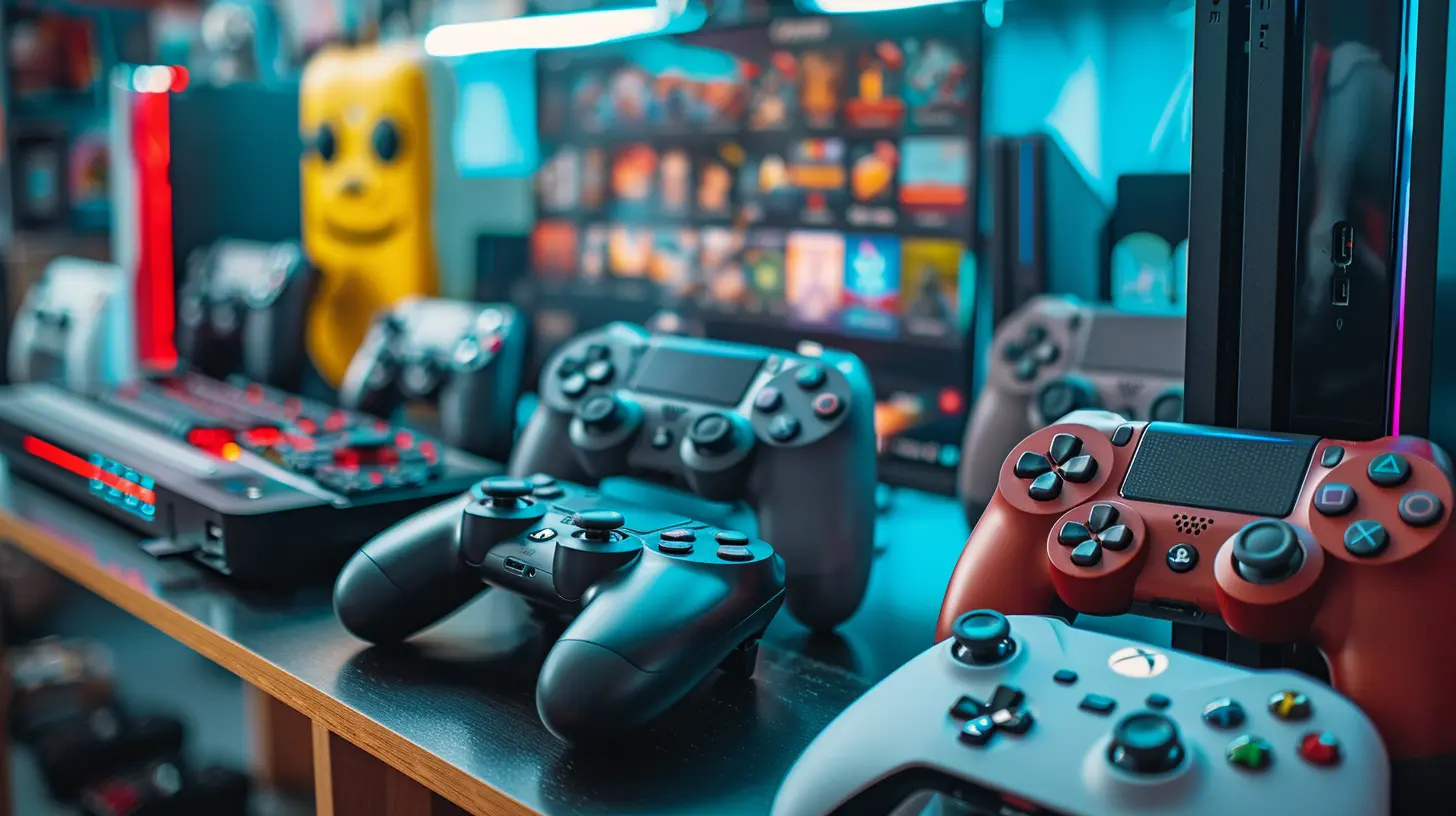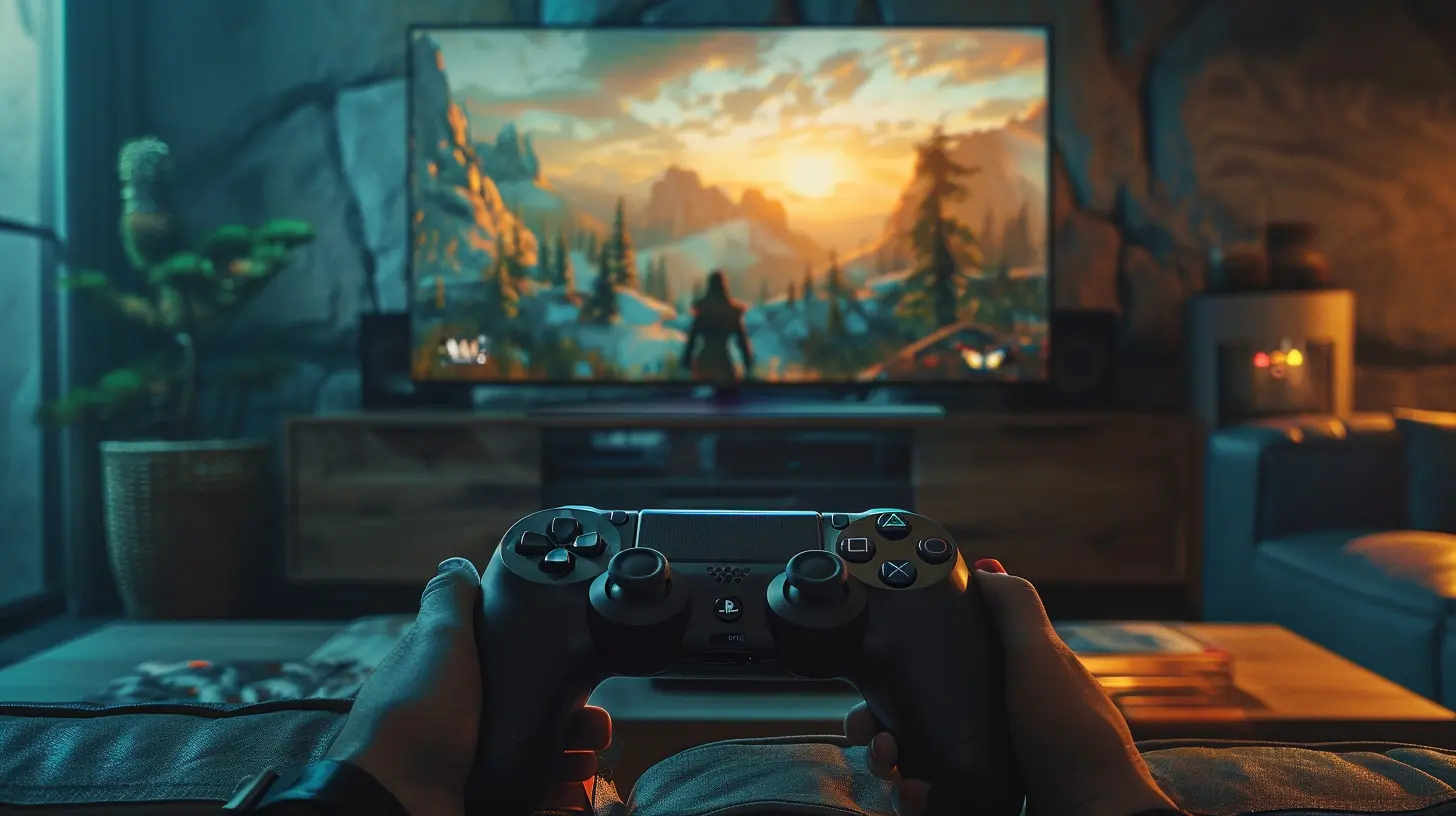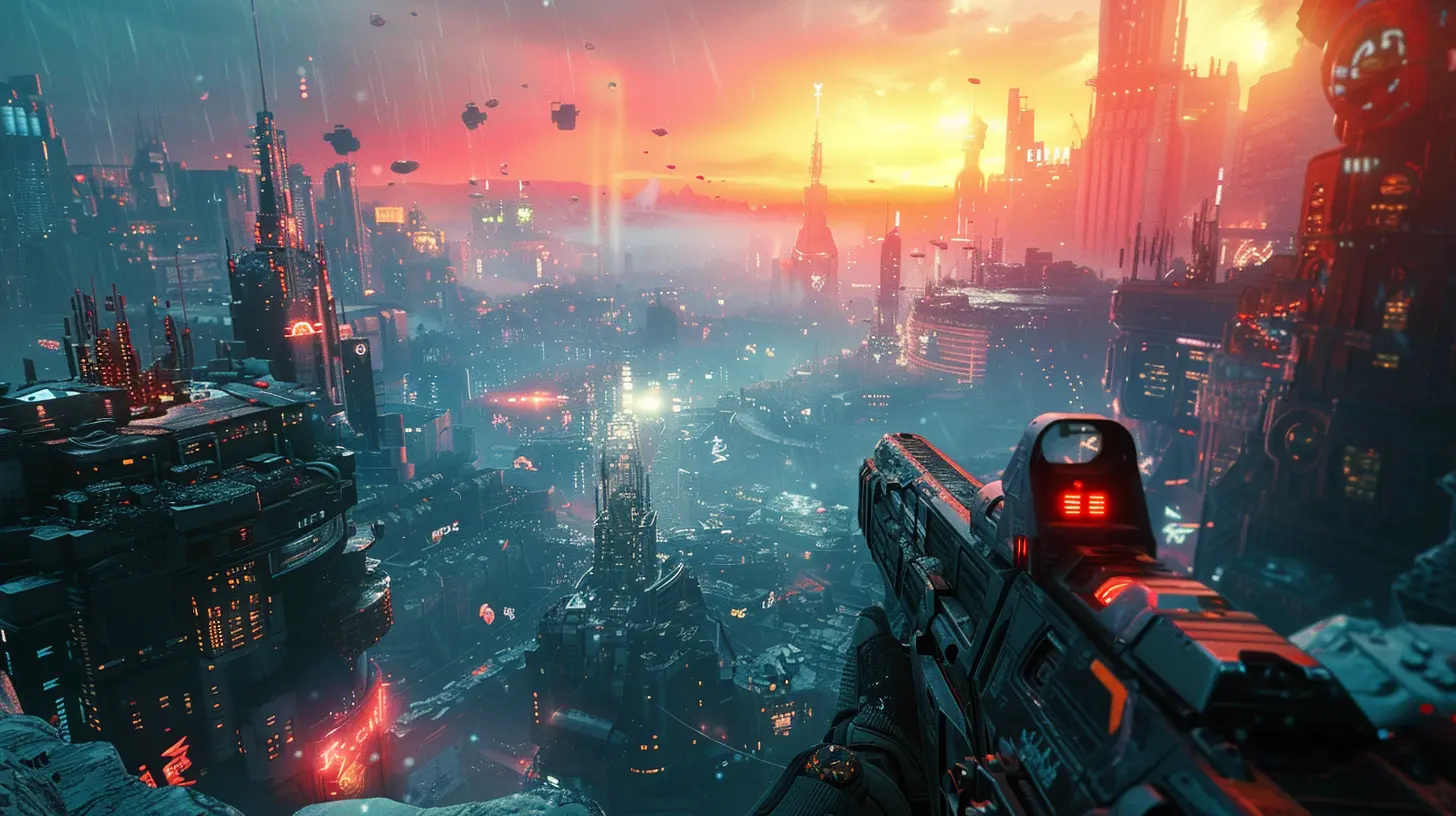Cross-Generation Console Games: What to Expect in the Future
19 July 2025
Let’s face it — jumping from one console generation to the next is like trying to hop on a moving train. One minute you're chilling with your PS4 or Xbox One, the next, BAM — everyone's talking ray tracing and SSD load speeds like it's the norm. But here's the kicker: not everyone makes the leap right away. That’s where cross-generation console games come in — the unsung heroes balancing the old and the new like a circus performer juggling chainsaws and flaming bowling pins.
So what does the future hold for these half-gen, half-next-gen gaming hybrids? Are they sticking around, evolving into something cooler, or slowly fading into the digital void? Buckle up, gamer fam — we're diving deep into the pixelated crystal ball to see what’s next for cross-gen gaming.
What Are Cross-Generation Console Games, Anyway?
Alright, let’s clear the air. Cross-generation games (aka “cross-gen”) are titles released to be compatible with both the current generation of consoles (PS5, Xbox Series X/S) and the previous generation (PS4, Xbox One). Think of them like bilingual games — they speak the tech language of both old and new hardware.Games like Horizon Forbidden West, FIFA 23, and Call of Duty: Modern Warfare II have all tried to straddle the line. Some do it gracefully. Others… well, let’s just say they don’t age like fine wine.
Why Do Cross-Gen Games Even Exist?
Simple answer? Money and time. Devs and publishers want to sell to everyone — not just folks lucky enough to score a next-gen console in this chip-shortage, bot-infested marketplace.Let’s break it down:
- Install Base: PS4s and Xbox Ones are still in a TON of homes. Ignoring that user base would be the digital equivalent of leaving money on the table.
- Development Costs: Making a game is expensive (and time-consuming). It’s way more budget-friendly to develop one title for both gens than two separate versions.
- Transition Period: When new consoles drop, it takes time before everyone switches over. Cross-gen games act like that helpful coworker who guides you through the new office coffee machine. Necessary.
But as we gallop into the future, how long will this era of "playable on everything" last?
Cross-Gen Gaming: The Current State of Play
We’re stuck in what feels like a console limbo. Still getting PS4 versions of new games, but PS5 and Series X have really started flexing their muscle. Ultra-fast loading? Gorgeous ray tracing? Haptic feedback? Yes, please.However, when developers make cross-gen games, they often have to hold back. Imagine designing a futuristic hoverboard but being told it also has to work as a skateboard from 1998. Some of that next-gen magic gets lost because the older consoles just can't keep up.
Example? Look at Cyberpunk 2077 — an ambitious title crushed under the weight of trying to run on aging hardware. The last-gen versions were… well, let’s just say it was a digital disaster (until many patches later).
The Future: Will Cross-Gen Games Stick Around?
Okay, here’s the million-dollar question.We’re already seeing major first-party studios slowly dropping support for last-gen. Sony, for example, isn’t guaranteeing that upcoming exclusives will be cross-gen. Spider-Man 2? PS5-only, baby. Microsoft is also starting to focus more on Series X/S features without catering to Xbox One.
So Are Cross-Gen Games Going Extinct?
Nope — but they’re definitely evolving. Here’s what we can expect:1. 🎮 Smoother Transition Titles
We won’t see an immediate stop to cross-gen titles, but future ones will likely be “next-gen first,” with downscaled versions for older consoles rather than the current “make for PS4, slightly shinier on PS5” approach.Think of it like developing a Ferrari and then figuring out how to make a Hyundai version that still does the job.
2. 🔁 Backward Compatibility Gets Better (And Smarter)
With current-gen consoles supporting backward compatibility, studios might stop making separate SKUs. Instead, you’ll buy one version of the game, and it just works on your system — with the right features toggled on or off depending on your console’s horsepower.Kinda like ordering a burger and it just knows how well you want it cooked. Medium-rare for PS5, well-done (AKA basic) for PS4.
3. ☁️ Cloud Gaming Could Blur the Lines
Cloud gaming is swooping in like that cool cousin who brings high-end gadgets to family parties. Services like Xbox Cloud Gaming and PlayStation Plus streaming mean old consoles can technically play next-gen games… via the cloud.So, in the future, your dusty PS4 might still play cutting-edge games — just not off a disc. The only thing you’ll need? A solid internet connection and the willpower to not rage quit during lag spikes.
4. ⚡ Shorter Cross-Gen Windows
We're expecting that by 2025, most triple-A studios will ditch the cross-gen model for good. The industry will fully embrace new-gen engines like Unreal Engine 5, which are just too ambitious for older hardware.That means we're on the edge of a real generational leap — fewer limits, better worlds, animations that don’t look like cardboard puppets.
5. 💡 Smarter Cross-Platform Development Tools
Tools like Unity and Unreal are getting better at scaling games across platforms — not just consoles, but PC and mobile too. So even if a game is technically “cross-gen,” it may not suffer the same performance pitfalls as older attempts.We might get true parity one day. Imagine no more watered-down visuals or missing features just because you’re playing on an older system. A gamer can dream, right?
What This Means for Gamers Like You (and Me)
So, you’ve got a PS4 or Xbox One and you're wondering — should I upgrade now or ride this cross-gen wave a little longer? Here's the scoop:- If you're into high fidelity, faster load times, and future-proofing, jumping to the current-gen is totally worth it.
- If you're still enjoying the ride on your PS4 or Xbox One, don’t stress. You’ve still got at least another year or two of quality games.
- Digital libraries and smart delivery systems mean less worry about losing access to your games if you do upgrade later.
Basically, you're not missing out just yet. But the FOMO will creep in eventually when your friends start showing off their DualSense triggers and OLED-ready visuals.
The Elephant in the Room: Will Cross-Gen Hold Back Innovation?
Yup, that’s the big fear.Some devs argue that designing games with older hardware in mind stifles creativity and limits what they can put on screen. It’s like trying to build a mansion but being told it has to fit inside a studio apartment.
But here’s the silver lining — while early cross-gen titles may have been safe bets, we’re now seeing more experimentation. Studios are creating scalable engines, modular worlds, and procedural storytelling that work across systems without compromising too much.
So while cross-gen does slow us down a bit, it’s not the anchor folks make it out to be — more like a speed bump on the way to bigger, bolder gaming experiences.
Final Thoughts: A Playable Past and a Shiny Future
Cross-generation console games are like a trusty pair of jeans — familiar, comfortable, but eventually, you want something fresh and modern. For now, they’re still in play, helping millions experience new games without forcing a hardware upgrade.But as tech matures and devs grow bolder, we’ll see less of this double-dipping. Within the next couple of years, cross-gen will likely be more of a niche exception than the rule.
And honestly? That’s a good thing.
Gaming deserves to evolve, and sometimes evolution means leaving the past behind… or at least letting it chill quietly while we party with the new kids on the block.
all images in this post were generated using AI tools
Category:
Console GamesAuthor:

Tayla Warner
Discussion
rate this article
2 comments
Rivera Ruiz
Exciting times ahead for gamers! Cross-generation titles promise enhanced experiences, bridging the gap between consoles. Looking forward to innovative gameplay and stunning graphics that cater to all players.
November 4, 2025 at 6:14 PM

Tayla Warner
Absolutely! Cross-generation titles are set to elevate the gaming experience for everyone, uniting players and pushing the boundaries of innovation and graphics. Exciting times indeed!
Elidi Middleton
Get ready to level up your gaming experience! Cross-generation games are like a delicious buffet—serving up familiar favorites while sprinkling in new surprises. Buckle up, gamers; the future promises epic adventures and pixelated fun that everyone can enjoy, no matter their console!
July 26, 2025 at 3:44 PM

Tayla Warner
Absolutely! Cross-generation games are set to enrich our gaming landscape, blending nostalgia with innovation for all players. Exciting times ahead!


